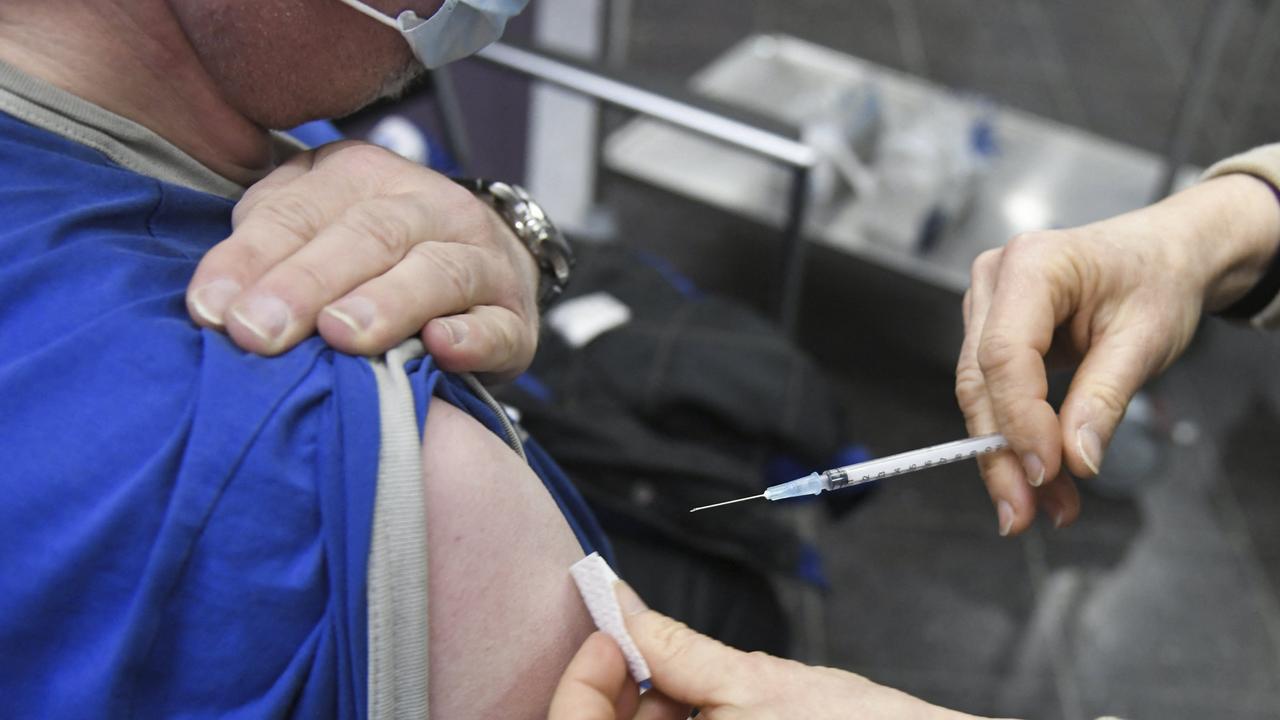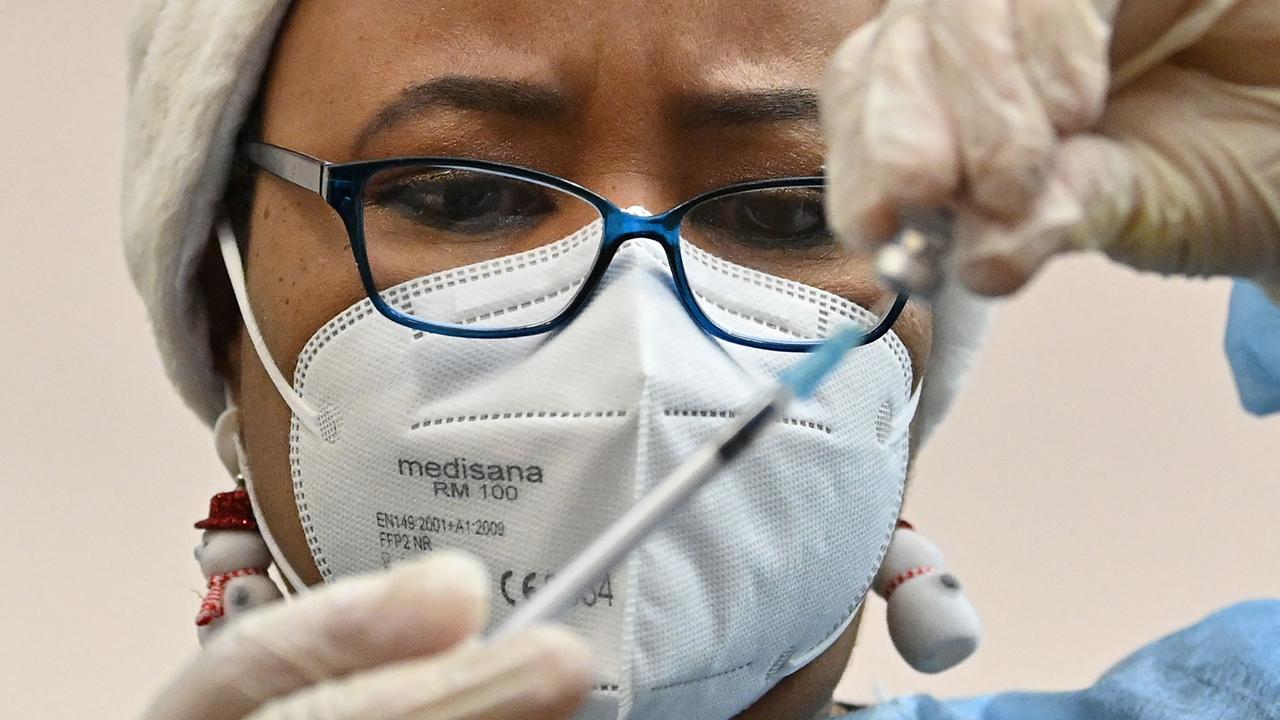Denmark, Norway and Iceland suspend AstraZeneca jabs over blood clot fears, while Italy and Romania ban one batch
Several countries including Denmark, Norway and Iceland have suspended the use of the AstraZeneca vaccine over side effect fears.

Australia’s rollout of the AstraZeneca vaccine will continue despite several countries in Europe suspending the jab on Thursday over blood clot fears.
Denmark, Norway and Iceland all suspended the use of the Oxford/AstraZeneca jab on Thursday over fears it could be linked to blood clots, prompting Europe’s medical agency to quickly reassure the public there were no known health risks linked to the jab.
Italy joined them, banning a batch of the vaccine as a precaution, even though its medicines regulator said there was currently no established link with the alleged side-effects.
As a consequence of Italy’s decision, the Romanian government on Thursday evening said that it was also withdrawing over 4,200 doses from the same AstraZeneca batch.
“We take this measure as an extreme precaution, without any scientific reason in Romania which led to this,” Romania’s national centre for vaccination against COVID-19 said in a press release.
However, Bucharest mentioned that the overall campaign with the AstraZeneca vaccine will go on as scheduled.
The batch mentioned by the Italian regulator, ABV2856, is different to that suspended by Austria on Monday, which the European Medicines Agency (EMA) named as ABV5300.
On Monday, Austria announced it had suspended the use of that particular AstraZeneca batch, after a 49-year-old nurse died of severe blood coagulation days after receiving the shot.
Other countries followed suit, while Denmark, Norway and Iceland on Thursday went further, suspending entirely the use of AstraZeneca’s vaccine.
Australia’s Home Affairs Minister Peter Dutton told Today this morning that the vaccine was safe and the rollout in Australia would continue.
RELATED: Mystery remains over shipment of AstraZeneca doses in Australia

“The fact is the virus needs to be dealt with,” Mr Dutton said.
“We need to deal with it by way of vaccine particularly for older vulnerable people and the way in which this rollout has worked not just here, but around the world, means we do have an enormous amount of data.
“The conclusion here is that the vaccine is safe, it will continue to rollout and we want to get to herd immunity as quickly as possible.”
Mr Dutton noted there had also been panic in Germany about one death in an aged-care facility that turned out to be unrelated to the vaccine.
“I just think cool heads need to prevail. Let’s look at the advice of the scientists. We have the best doctors in the world. They have gone through all the tests and trials. We were told to rush it. We’ve not rushed it. We will look at all the evidence.
“If there’s a problem the government responds very quickly. At the moment the advice very clearly from the doctors is that this is a safe vaccine and we want the rollout to continue.”
Infectious disease physician Professor Peter Collignon of the Australian National University also told Today the evidence so far showed the vaccine was safe.
“They did large studies in lots of countries and this (blood clots) wasn’t seen as a side-effect,” he said.
He said millions of doses had been administered in Britain without blood clots being recognised as a major issue, adding that around 200 in every 100,000 people would have clots in their lungs or legs every year.
“Yes we need to look at this,” he said, but added “So far the evidence isn’t overwhelming that it’s related to the AstraZeneca vaccine”.
The European Medicines Agency (EMA) said Thursday there had been 30 cases of ‘thromboembolic events’ among five million people who have had the jab so far in Europe.
However it added there is no indication the vaccine caused these conditions and that the AstraZeneca jab could continue to be used pending the results of a probe.
“The information available so far indicates that the number of thromboembolic events in vaccinated people is no higher than that seen in the general population,” the EMA told AFP by email.

The UK called the jab “safe and effective”.
“When people are asked to come forward and take it, they should do so in confidence,” British Prime Minister Boris Johnson’s spokesman said, as AstraZeneca shares plunged by more than 2.5 per cent on the stock exchange.
Gavi, which co-leads the Covax program for ensuring vaccines are equitably distributed globally, said it would wait to hear what the World Health Organisation had to say.
France, however, will continue to use AstraZeneca vaccine, with French Health Minister Olivier Veran saying there was “no need” to suspend use of the vaccine.
“The upside of vaccinations at this stage outweighs the risks,” Mr Veran told a news conference.
France is scrambling to boost its vaccination rollout in the hope of avoiding a third lockdown.
Daily numbers of admissions into intensive care in the Paris region are now so high its hospital capacity risks being overrun.
Authorities are preparing to evacuate “dozens or even hundreds” of intensive care patients away from the capital and its suburbs to other regions.
France lags behind major European neighbours for shots administered due to a shortage of doses amid complaints about bureaucracy.
The health ministry said nearly 20,000 pharmacies would join the vaccination drive, while the fire service and the army are also being drafted in larger numbers to help following a call from Prime Minister Jean Castex for “national mobilisation”.
— With AFP



